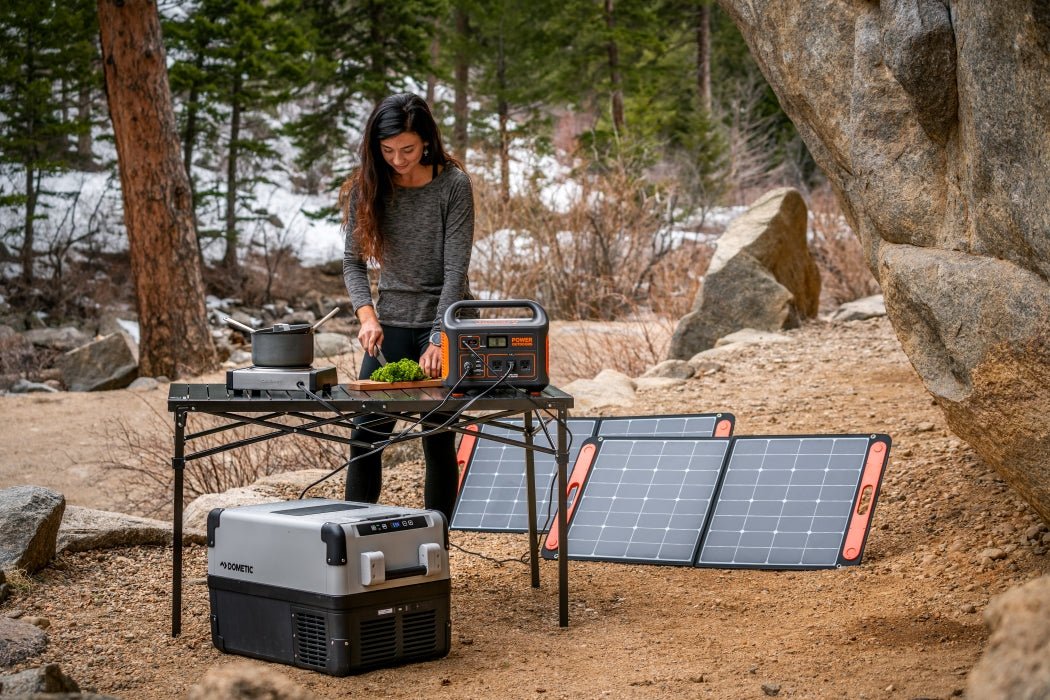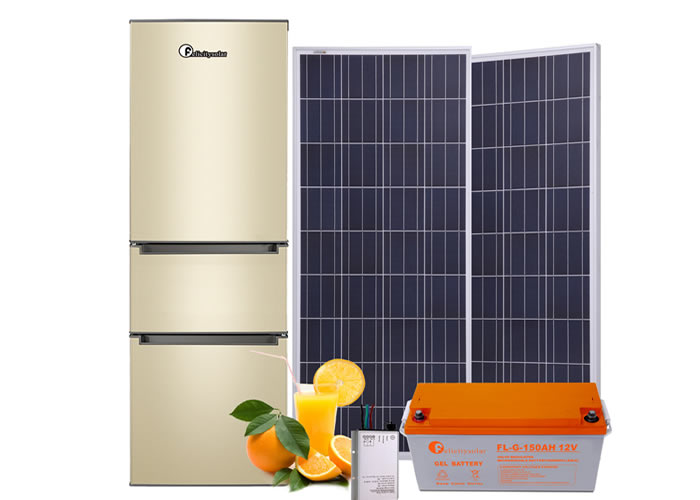For off-grid dwellers, a solar refrigerator is a must-have for eco-friendly cooling.
For off-grid dwellers, a solar refrigerator is a must-have for eco-friendly cooling.
Blog Article
The Significance of Solar Refrigerator in Modern Renewable Resource Practices
The integration of solar fridges within modern eco-friendly energy practices represents a substantial improvement in lasting technology. By utilizing solar power for air conditioning, these systems not just lower reliance on standard power resources yet also address essential issues such as food conservation and access to important medications in remote regions. As we explore the systems, applications, and environmental implications of solar refrigeration, it ends up being noticeable that this advancement might play a crucial duty fit our power future. What stays to be taken a look at is exactly how this innovation can be scaled and enhanced for broader influence. solar refrigerator.
Advantages of Solar Refrigerators
Solar refrigerators constantly provide various benefits that make them an enticing choice for both household and commercial usage. Among the primary advantages is their ability to harness renewable power, considerably lowering dependence on conventional electrical power sources. This not just decreases power costs but also adds to ecological sustainability by reducing greenhouse gas emissions.
One more secret advantage is their performance in remote areas where traditional power supply may be unstable or missing. Solar refrigerators make it possible for individuals and services to keep food safety and protect perishable products, thereby improving food safety and security in underserved locations.
Additionally, solar fridges usually call for lower upkeep contrasted to traditional versions, as they have fewer moving components. solar refrigerator. This causes enhanced durability and long life, giving an economical solution with time. They also operate silently, adding to an extra pleasurable living or functioning setting
Furthermore, the fostering of solar refrigeration technology aligns with worldwide initiatives to advertise clean power solutions and combat climate modification. By purchasing solar fridges, customers not just profit personally but also contribute to wider sustainability efforts, making them a forward-thinking selection for the modern-day age.
Just How Solar Refrigerators Job

Solar fridges usually consist of a battery storage system to ensure capability during durations of low sunshine or nighttime. When sunlight is plentiful, the PV panels generate electrical energy to operate the compressor and bill the batteries. The stored energy can after that be used when solar power wants, keeping a constant temperature level inside the refrigerator.
Lots of solar refrigerators likewise include energy-efficient elements, such as LED lights and high-performance insulation, to reduce power intake. The efficiency of these devices is further improved by passive air conditioning techniques, which can include reflective surface areas and thermal mass materials that assist keep awesome temperature levels.
Applications in Off-Grid Locations

In remote areas, where standard refrigeration options are usually impractical or unavailable, solar fridges use a sustainable service. They enable neighborhood farmers to save disposable produce, thus lowering next page waste and improving food safety and security. Additionally, in medical care setups, solar refrigerators ensure that vaccinations and vital drugs continue to be feasible, adding to better health and wellness outcomes for populaces that may otherwise encounter significant obstacles to health care access.
Additionally, the deployment of solar fridges in off-grid areas can boost regional economies by assisting in the establishment of small companies, such as food handling and distribution. As these neighborhoods access to trustworthy refrigeration, they can engage in value-added tasks, ultimately causing improved source of incomes. The fostering of solar refrigeration innovation stands for not only a functional response to energy obstacles but likewise a critical investment in the durability and sustainability of off-grid areas.
Environmental Effect and Sustainability
The assimilation of solar refrigerators into power systems dramatically enhances environmental sustainability by lowering reliance on fossil fuels and lessening greenhouse gas exhausts. By harnessing solar power, these fridges run without the demand for conventional electrical power, which is commonly generated from nonrenewable fuel source sources. This shift not just cuts carbon impact yet also promotes cleaner air high quality, as fewer contaminants are launched right into the ambience.
In addition, solar fridges are designed to be energy-efficient, frequently using sophisticated insulation innovations and power administration systems. These functions additional reduction power usage, causing a much more lasting cycle of use. In rural and off-grid areas, solar refrigerators provide important cooling without the environmental costs connected with diesel generators or other fossil fuel-based systems.
In addition, the fostering of solar refrigeration adds to the decrease of food putridity, thus decreasing food waste and its involved environmental influences. As food manufacturing and waste are considerable contributors to greenhouse gas emissions, enhancing food conservation via sustainable cooling methods plays a crucial function in general environmental stewardship. Solar refrigerators not just stand for a technological innovation however also straighten with wider goals of sustainability and eco-friendly obligation.

Future of Solar Refrigeration
Imagining a future where solar refrigeration becomes the norm discloses its possible to transform the means we approach cooling important site and food conservation. As innovations in photovoltaic innovation proceed to evolve, solar refrigerators are anticipated to come to be more effective, budget friendly, and accessible. This shift will certainly not just lower reliance on nonrenewable fuel sources however likewise dramatically lower greenhouse gas emissions connected with standard refrigeration approaches.
Cutting-edge layouts, such as solar-powered absorption and thermoelectric fridges, are likely to gain traction, especially in off-grid and rural areas. The combination of wise innovations, consisting of IoT abilities, will certainly improve individual experience and enhance power usage. Moreover, the unification of power storage space options will allow solar refrigerators to offer consistent cooling also during durations of reduced sunlight.
The farming market stands to profit greatly, as solar refrigeration can expand the service life like this of disposable goods, reducing food waste and boosting food protection. As federal governments carry out supportive plans and motivations, combined with increased customer understanding, solar refrigeration might become a typical method across numerous markets. Ultimately, the future of solar refrigeration assures a lasting and efficient strategy to air conditioning, fundamentally changing food preservation and power usage worldwide.
Conclusion
In recap, solar refrigerators stand for a critical advancement in eco-friendly energy techniques, providing numerous advantages consisting of minimized reliance on nonrenewable fuel sources and enhanced food conservation in off-grid locations. Their operation uses solar energy successfully, thus advertising sustainability and reducing ecological impact. As innovation remains to develop, the possibility for solar refrigeration to contribute to regional economies and wider sustainability objectives will likely expand, strengthening its relevance in the shift in the direction of a cleaner, more sustainable power future.
Report this page